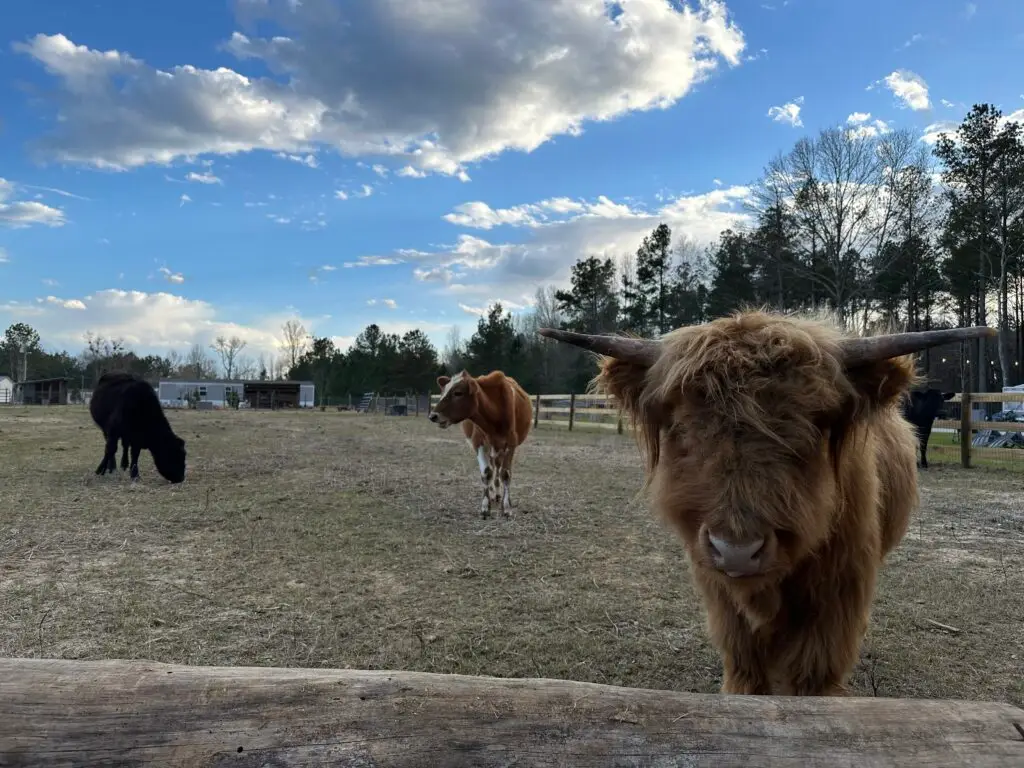
Who is who?
We have a mixture of cattle breeds on the farm. We started with Fred, our Scottish Highland bull, and Kyle, our Holstein steer. Fred was almost a year old when he came to the farm. When we went to meet Fred we saw Kyle. He was a tiny calf that had just been weaned from his mom, likely a diary cow where they typically don’t keep the bull calves on the farm. He was so small, and timid. We knew we couldn’t leave without him.
Fred was already used to people, loved being brushed and getting scratches under his neck. Kyle took some warming up. But after a few weeks he learned that we were not going to harm him and would only love him. Now he’s almost as snuggly and friendly as Fred.
Fred loves attention and pets, you will likely find him in the shade during the day but at dawn & dusk or on rainy days he is out & about. You can find combs for Fred along the fence line. He loves being brushed and getting his neck scratched.
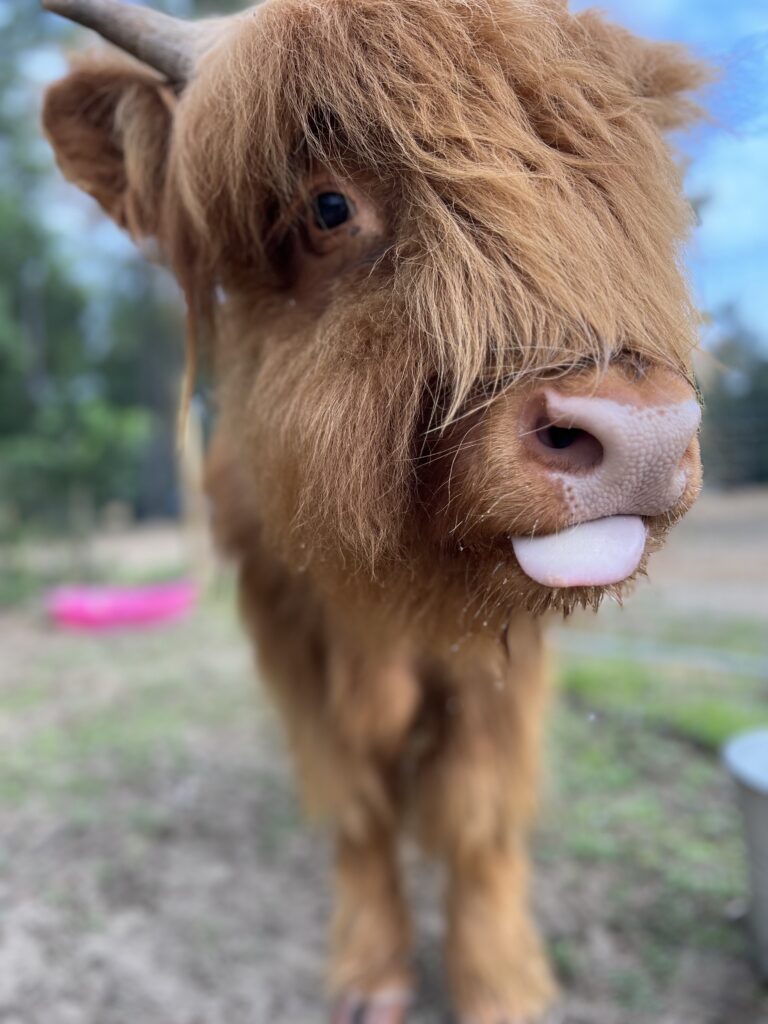
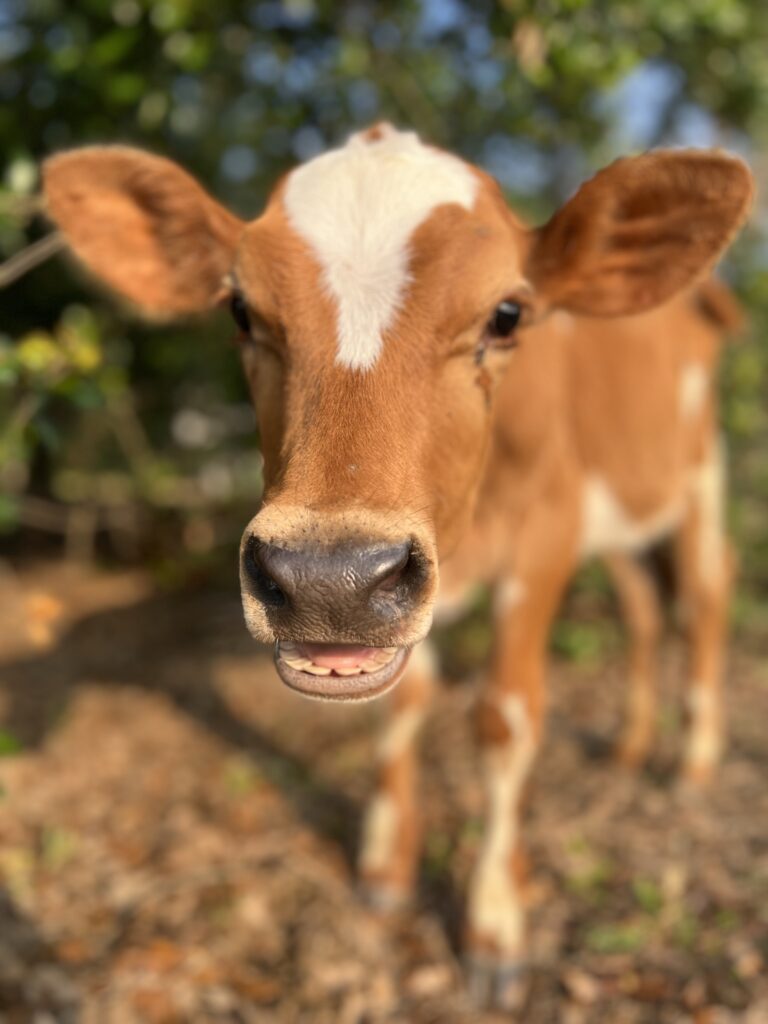
In our cow pasture you will also find three Black Angus grazing with Fred & Kyle. The Angus cattle at our farm are a beef share with our friend at Flower Town Charm Farm in Summerville. When they ran into a problem over their leased pasture and needed a place to raise their angus we offered to help. Patty, a two year old cow, and her baby, Meatball, were the first to arrive. They fit right in with the others and made themselves at home. And in early 2024, we added Delilah, a heifer, who spent her first years of life being raised with goats after her mama cow died. When you visit the farm you will know Patty because she is the boss and the talkative one, while Delilah is more friendly but reserved.
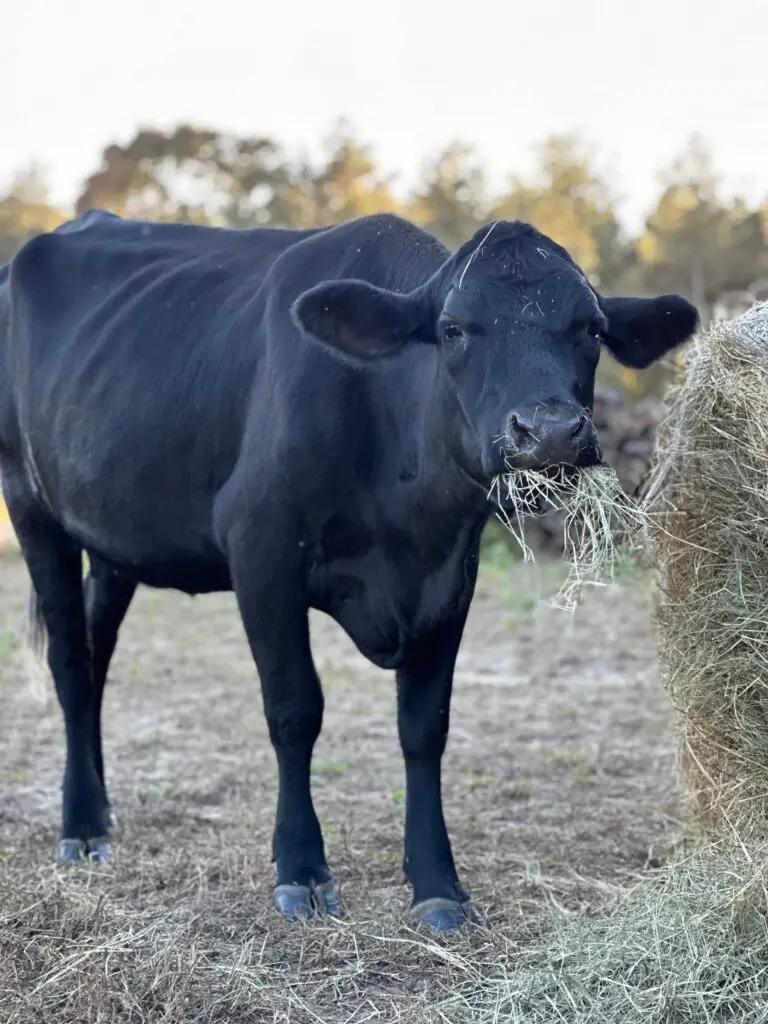
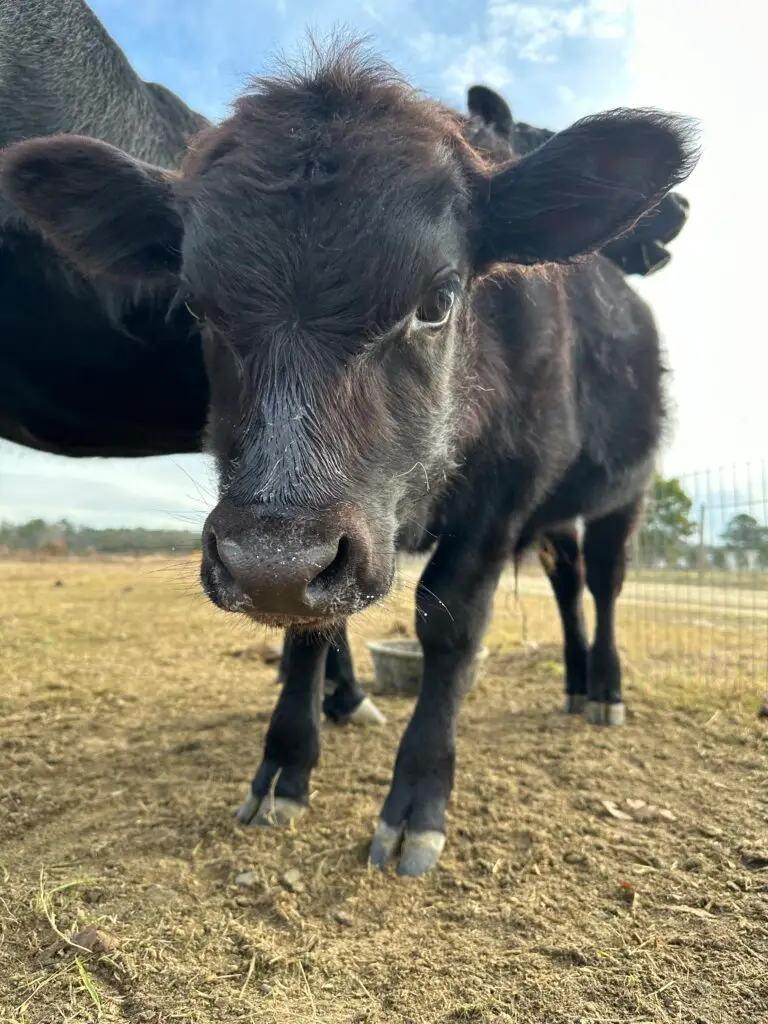
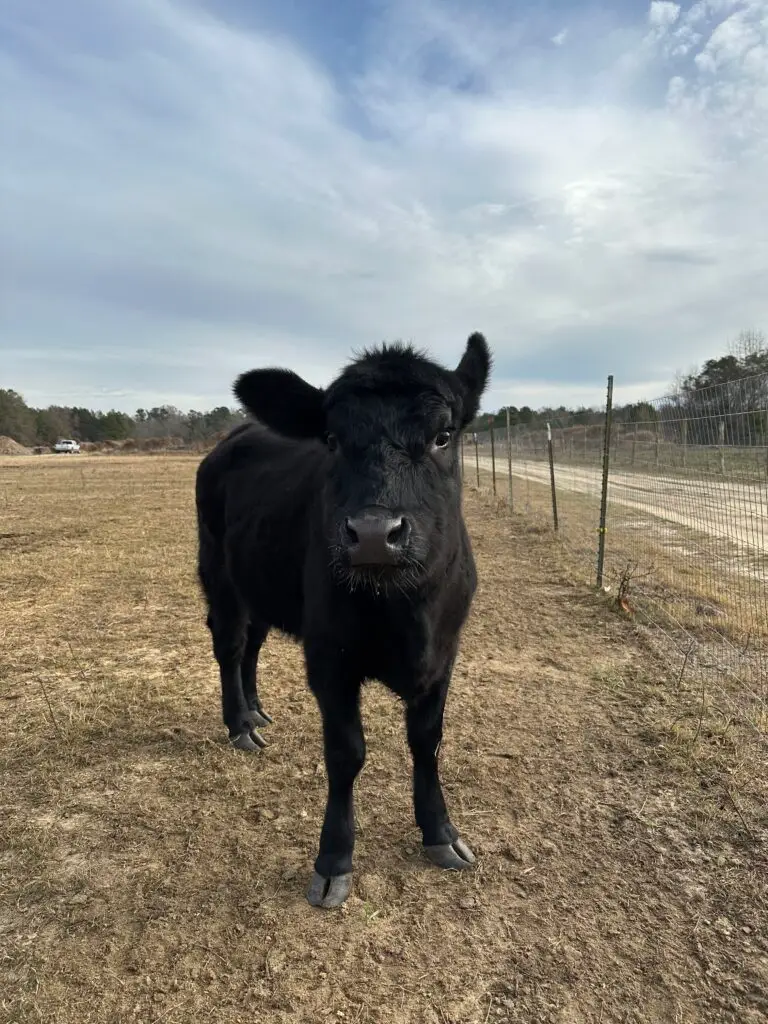
What do the cows eat?
Our cows eat a diet of hay and grass. We have hay delivered in large round bales from local hay farmers. The hay bales are a mixture of southern grasses that have dried and make it easier to store and last through dry, brown seasons like winter. During the winter, our 5 cows will eat an entire 600lbs hay bale in about 5-6 days. In the summer, they spend more time browsing leaves, weeds and grasses and can make a hay bale last up to a month.
Grass-fed vs Grain-fed?
There is a lot of discussion around grass fed beef, also a lot of misconception and confusion from the marketing on the end consumer beef products. Our cows are grass-fed because they have 24/7 pasture time with hay year round. We will occasionally give them alfalfa pellets but we do not feed our cows grain pellets or corn. Instead we choose to give them free access to pasture and hay. We do plant oats in the fall and the cows graze on the oats but they are eating the leaves and stems of the plants before it bolts to produce the oat grain. I am not anti grain feeding cows. We made the choice for several reasons;
First, grain feed is expensive. Our 5 cows would go through several bags of a feed every week if we fed grain. They also become more dependent on ‘feeding times’ instead of just grazing and eating on their own time. This makes for loud cows that yell and moo a lot to make sure you come feed them.
Cows are big and scary when they are running towards you with a bucket of feed. When Fred first came to us he was being fed grains and we had to wean him off of the habit. When I would go in to feed him he was so excited he would jump in the air and charge towards me! It was very intimidating to have a large cow with horns running towards you. So we worked to get him transitioned over to grass & hay.
Grain is typically used in beef farming to fatten and bulk up the cows faster before processing. We don’t need to rush our cows to market so we can let them eat and gain weight at a natural pace through grass & hay.
Are the cows raised for beef?
Our angus cows are beef cows. Pattie & Delilah are breeding mamas, meaning each year we will rotate breeding one of the girls to produce a calf that will be raised for beef. Meatball, Patties baby, is our first beef steer. He is 75% black angus, 25% wagyu.
If you are interested in purchasing beef from the farm please let us know. We have a list of interested families and as we get closer to processing can offer options to you.
Did you know?
Cows can poop up to 150lbs of manure EVERY DAY! That a lot crap! The benefits of cow manure are helpful on the property though. Each week we spread the manure in the pasture in order to break up the piles and let it dry out. This process stops the fly larvae from developing and also lets the manure dry up to break down into soil fertilizer faster.
A ‘Cow’ is a female that has already had a calf. A ‘Heifer’ is a young female that has never calved before. A ‘Bull’ is an intact male and a ‘Steer’ is a castrated male. Female cows make great companions and steers can also be in the the females without any issue. But multiple bulls do not play well together. You can really only have 1 bull in with the cows to keep the peace. That is why Fred is the only intact male we have at the farm.w

